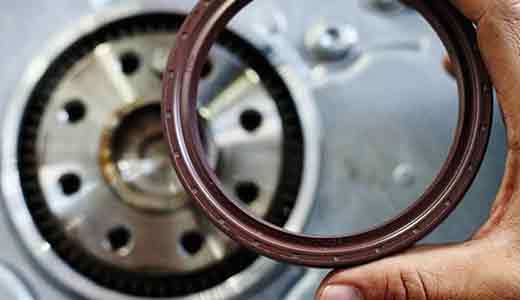Popular Information
Add: Yongkang st.renxian,xingtai city,hebei province china.054000
Tel:+86-319-7566977 7519805
Phone : +8613903298188
Fax:+86-319-7566976
E-mail :richard@bxseals.com
Maximizing Efficiency with Fluorocarbon Oil Seals in Agricultural Machinery
Release Time:
Sep 28,2025
Maximizing Efficiency with Fluorocarbon Oil Seals in Agricultural Machinery In the world of agricultural machinery, efficient performance is vital for productivity and profitability. One of the key components that can significantly enhance the efficiency and reliability of equipment is the use of fluorocarbon oil seals. These seals play a crucial role in preventing leaks, ensuring lubrication, and
Maximizing Efficiency with Fluorocarbon Oil Seals in Agricultural Machinery
In the world of agricultural machinery, efficient performance is vital for productivity and profitability. One of the key components that can significantly enhance the efficiency and reliability of equipment is the use of fluorocarbon oil seals. These seals play a crucial role in preventing leaks, ensuring lubrication, and maintaining optimal operating conditions. In this article, we will explore how fluorocarbon oil seals maximize efficiency in agricultural machinery, their benefits, applications, and maintenance practices to ensure longevity and superior performance.
Table of Contents
- What are Fluorocarbon Oil Seals?
- Benefits of Fluorocarbon Oil Seals in Agriculture
- Applications of Fluorocarbon Oil Seals in Agricultural Machinery
- How Fluorocarbon Seals Reduce Maintenance Costs
- Choosing the Right Fluorocarbon Seal for Your Machinery
- Installation Best Practices for Fluorocarbon Oil Seals
- Maintenance Tips for Fluorocarbon Oil Seals
- Frequently Asked Questions
- Conclusion
What are Fluorocarbon Oil Seals?
Fluorocarbon oil seals, often referred to as FKM seals, are high-performance sealing solutions made from fluorinated polymers. These seals are engineered to withstand extreme temperatures, aggressive chemicals, and high pressures, making them ideal for use in various agricultural machinery applications. Unlike traditional rubber seals, fluorocarbon seals exhibit superior resistance to oil, fuel, and other substances commonly encountered in agricultural settings.
Key Characteristics of Fluorocarbon Oil Seals
- Temperature Resistance: Fluorocarbon seals can operate effectively in a wide temperature range, typically from -20°C to 200°C (-4°F to 392°F).
- Chemical Resistance: They resist degradation from oils, fuels, solvents, and other chemicals, ensuring reliability in harsh operating conditions.
- Low Compression Set: These seals maintain their shape and sealing properties even after prolonged exposure to high temperatures and pressures.
- Durability: Fluorocarbon oil seals have a longer lifespan compared to traditional sealing materials, reducing the frequency of replacements.
Benefits of Fluorocarbon Oil Seals in Agriculture
The integration of fluorocarbon oil seals in agricultural machinery offers numerous benefits that contribute to overall operational efficiency. Here are some key advantages:
1. Enhanced Reliability
Fluorocarbon oil seals provide enhanced reliability by effectively preventing leaks and maintaining the integrity of lubricants. This reliability is essential for the optimal functioning of machinery, which operates under challenging conditions such as moisture, dirt, and fluctuating temperatures.
2. Improved Machinery Performance
By ensuring proper lubrication and reducing friction, fluorocarbon oil seals help improve the performance of engines and hydraulic systems. This enhancement leads to smoother operation, better fuel efficiency, and increased power output.
3. Reduced Downtime
Machinery downtime can significantly impact productivity. The durability of fluorocarbon oil seals minimizes the need for frequent repairs and replacements, leading to reduced downtime and increased operational efficiency.
4. Cost Savings
While the initial investment in fluorocarbon oil seals may be higher than traditional options, the long-term savings are substantial. Lower maintenance costs, fewer replacements, and improved fuel efficiency all contribute to a favorable return on investment.
Applications of Fluorocarbon Oil Seals in Agricultural Machinery
Fluorocarbon oil seals find application across a range of agricultural machinery, including:
1. Tractors
In tractors, fluorocarbon oil seals are used in engines, transmissions, and hydraulic systems to ensure efficient operation and prevent leaks. Their ability to withstand high pressures and temperatures makes them ideal for these demanding applications.
2. Harvesters
Harvesters, which operate in various environmental conditions, benefit from the chemical resistance of fluorocarbon seals. These seals provide reliable performance in lubrication systems, enhancing the efficiency of harvesting operations.
3. Planters
In planters, fluorocarbon oil seals help maintain the integrity of hydraulic systems, ensuring precise seed placement and consistent operation. Their durability contributes to reduced maintenance requirements during planting seasons.
4. Irrigation Systems
Irrigation systems often face exposure to chemicals and varying temperatures. Fluorocarbon oil seals provide the necessary resilience to handle these conditions, ensuring efficient water delivery and operation.
How Fluorocarbon Seals Reduce Maintenance Costs
Implementing fluorocarbon oil seals can lead to significant reductions in maintenance costs through various mechanisms:
1. Longer Lifespan
Fluorocarbon oil seals outlast traditional seals, resulting in fewer replacements and lower material costs over time. This longevity is particularly beneficial in agricultural settings where machinery is often subjected to rigorous use.
2. Decreased Lubricant Consumption
By effectively preventing leaks, fluorocarbon seals reduce the amount of lubricant needed for optimal operation. This reduction not only conserves resources but also minimizes the costs associated with purchasing lubricants.
3. Lower Labor Costs
With fewer breakdowns and repairs, labor costs associated with maintenance and downtime decrease. Operators can focus on productive tasks rather than spending time on repairs, leading to increased overall efficiency.
Choosing the Right Fluorocarbon Seal for Your Machinery
Selecting the appropriate fluorocarbon oil seal is crucial for maximizing efficiency and performance. Consider the following factors when making your choice:
1. Operating Conditions
Evaluate the specific operating conditions of your machinery, including temperature ranges, exposure to chemicals, and pressure levels. Choosing seals that match these conditions will ensure optimal performance and longevity.
2. Seal Design
Different designs of fluorocarbon oil seals are available, including single-lip, double-lip, and custom configurations. Selecting the right design based on your application’s needs will enhance sealing effectiveness.
3. Compatibility with Lubricants
Ensure that the selected fluorocarbon oil seal is compatible with the lubricants used in your machinery. Compatibility is essential for maintaining seal integrity and preventing premature failure.
Installation Best Practices for Fluorocarbon Oil Seals
Proper installation of fluorocarbon oil seals is vital for achieving optimal performance. Follow these best practices:
1. Clean Installation Surface
Ensure that the installation surface is clean, free of debris, and properly prepared. Contaminants can compromise the seal’s effectiveness and lead to premature failure.
2. Use Proper Tools
Utilize the appropriate tools for installation to avoid damaging the seal. Using dedicated seal installation tools can help achieve an even fit and prevent distortion.
3. Follow Manufacturer Guidelines
Adhere to the manufacturer’s installation guidelines for the specific fluorocarbon seal being used. This ensures that the seal is installed correctly and operates as intended.
Maintenance Tips for Fluorocarbon Oil Seals
To ensure the longevity and efficiency of fluorocarbon oil seals, consider these maintenance tips:
1. Regular Inspections
Conduct regular inspections of machinery to identify any signs of wear or damage to seals. Early detection can prevent leaks and costly repairs.
2. Monitor Operating Conditions
Keep track of operating conditions such as temperature and pressure levels. Sudden changes in these conditions can impact seal performance, necessitating adjustments or replacements.
3. Replace Damaged Seals Promptly
If any seals show signs of damage or wear, replace them promptly to avoid further complications. Addressing issues early ensures continued efficiency and reliability.
Frequently Asked Questions
1. What is the lifespan of fluorocarbon oil seals?
The lifespan of fluorocarbon oil seals can vary depending on operating conditions, but they typically outlast traditional seals due to their durability and resistance to wear.
2. Are fluorocarbon oil seals suitable for all types of machinery?
Fluorocarbon oil seals are versatile and can be used in various types of agricultural machinery, but it is essential to ensure compatibility with operating conditions and lubricants.
3. How can I tell if a seal needs replacement?
Signs of a seal needing replacement include leaks, visible wear, or a decrease in machinery performance. Regular inspections can help identify these issues early.
4. Can I install fluorocarbon oil seals myself?
While it is possible to install fluorocarbon oil seals yourself, following proper installation practices is crucial. If unsure, consulting a professional is advisable.
5. What maintenance is required for fluorocarbon oil seals?
Regular inspections and monitoring of operating conditions are essential for maintaining fluorocarbon oil seals. Promptly addressing any signs of wear or damage is also important.
Conclusion
Fluorocarbon oil seals play a pivotal role in maximizing the efficiency of agricultural machinery. Their durability, resistance to harsh conditions, and cost-saving benefits make them an essential component in modern farming operations. By understanding their advantages, applications, and maintenance practices, we can ensure that agricultural machinery operates at peak performance, reducing downtime and increasing productivity. Investing in fluorocarbon oil seals not only enhances machinery reliability but also contributes to the overall success of agricultural enterprises.
Key words:



